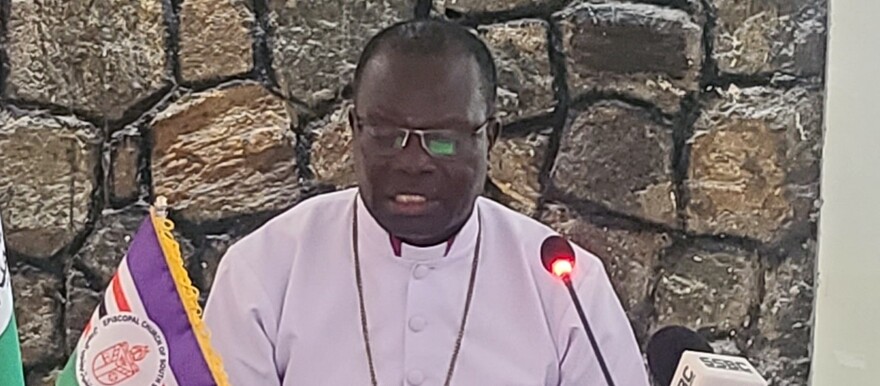The Episcopal Church of South Sudan on Thursday unveiled a proposal for the conduct of peaceful, free, fair, credible and democratic elections in the country.
The plan comes at a time when bishops of the internal provinces across the country have gathered in Juba for a two-day consultative workshop.
The activity aims to collect views on the church’s role toward influencing the government and intergovernmental policies on ensuring peaceful elections.
Speaking during the official opening of the meeting, primate Justin Badi Arama said the workshop came up with a raft of proposals because the church plays a pivotal role in ensuring peaceful, credible transition and elections.
Arama said the elections will be conducted in a fragile and insecure context because the country has been plagued with cyclic conflicts that have profound historical roots.
He cited communal conflicts, cattle raiding, boundary, conflicts that take the form of revenge killings and conflicts between cattle keepers and farmers among others as some of the major concerns threatening the conduct of peaceful elections.
“The project is designed to prepare citizens to participate in the transition and elections in a context where there are – myriad and grave human rights violations, a weak economy that cannot guarantee well-financed elections,” Arama said.
He added that very high proliferation of small arms and light weapons among civilians, a weak justice system cannot guarantee effective prevention, management and resolution of election-related disputes.
The ECSS leader disclosed that the ECSS proposal projected that the long civil war caused unbearable instabilities and distress hence should be addressed through civic education for citizens to participate in the elections.
“These distresses include loss of life and property, displacements, vows of revenge and non-cooperation between and among communities,” he said.
The proposal stated that the church is aware of the political trends in emerging African democracies, especially with recent examples in countries such as Kenya, Ghana, Zambia, Nigeria and South Africa, which indicate that elections are becoming competitive.
He said the project, which has three main components, seeks to nurture a critical mass of informed, patriotic, and empowered citizens united in diversity and committed to building a peaceful South Sudan.
“The country prepares to conduct national elections that will mark the end of the transition period. To achieve this, the ECSS will organize countrywide civic and peace dialogues to unite communities to discuss their role in peaceful, free, fair, credible, and democratic transition and elections,” it states.




